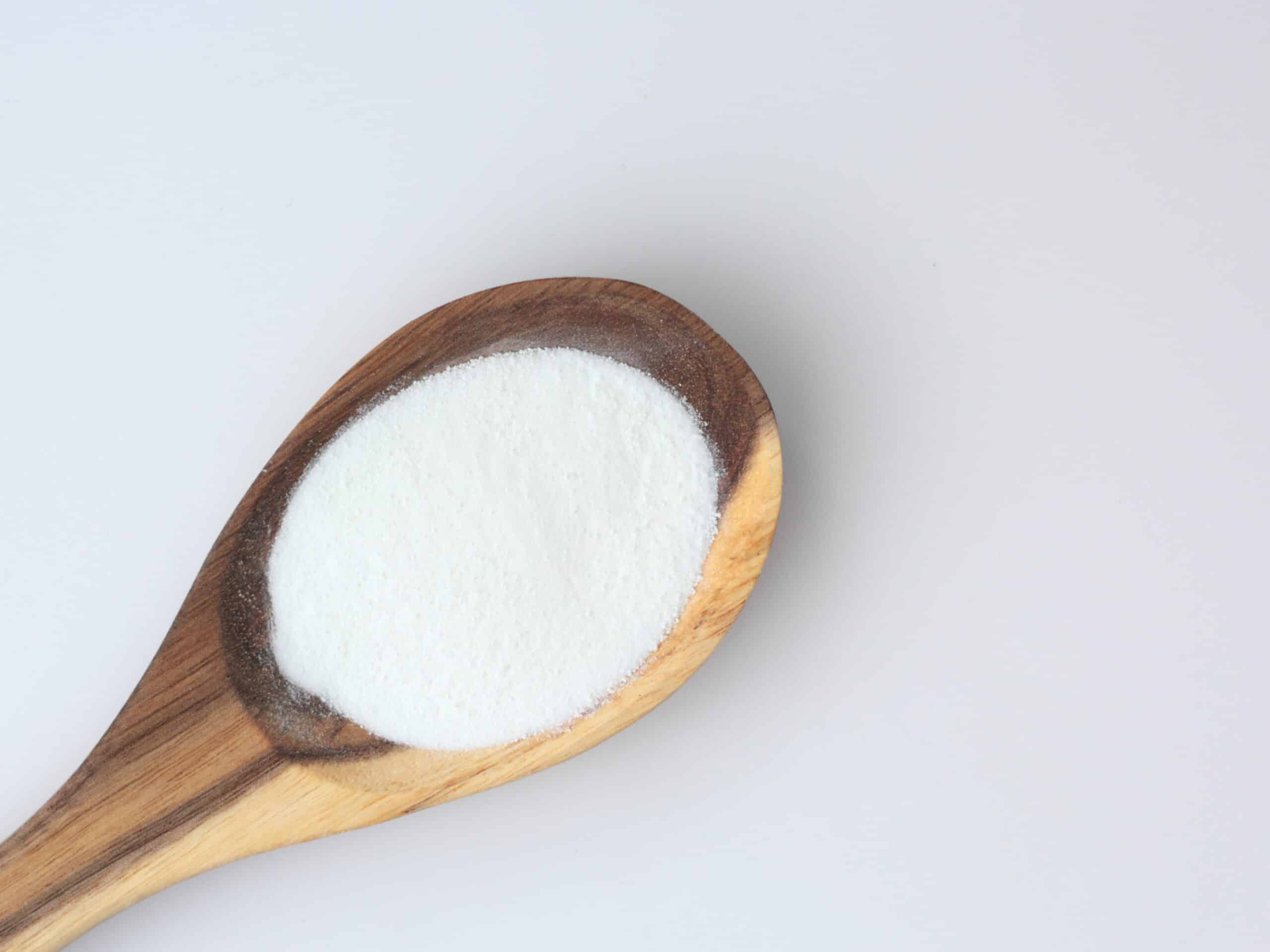If you’re looking for natural support for PCOS, take a look at the heavily-researched inositol. It’s a carbocyclic sugar that’s naturally occurring within our bodies. It’s also found in some nutritious foods such as whole grain bread, peanut butter, dried prunes and liver.
Inositol plays a major role in our bodies: a messenger role, sending signals which affect the function of insulin (as well as brain chemicals dopamine and serotonin).
The benefits of myo-inositol for PCOS are clear, so it helps to take a supplement as it can be difficult to make sure your diet provides the right amount. Plus, women with PCOS can find it harder to absorb it and need the combination of alpha-lactalbumin to aid absorption. Myo-inositol and D-chiro-inositol are two of the most popular inositol supplements on the market.
What is myo-inositol and D-chiro-inositol?
Your body actually converts a little bit of myo-inositol into D-chiro-inositol. So myo-inositol and D-chiro-inositol are nearly identical on a molecular level. But they have totally different roles when it comes to insulin. Myo-inositol helps the body’s use of glucose (via glucose transporters and glucose activation) while D-chiro-inositol is involved in glycogen synthesis and storage.
There are a huge number of studies which provide evidence for the benefits of taking a myo-inositol supplement to help manage PCOS symptoms. Inofolic Alpha contains your optimum dose of myo-inositol, along with alpha-lactalbumin to aid absorption. But there hasn’t been the same large body of research to suggest that taking D-chiro-inositol alone will be beneficial.
Start your journey with Inofolic Alpha, today
The PCOS supplement for women for life
What are the benefits of taking myo-inositol and d-chiro-inositol?
There’s no doubt that the right inositol supplement can be beneficial for those with PCOS, but how and why does inositol benefit you?
Benefits of Inositol
Reduces risk of metabolic syndrome
Metabolic syndrome is a group of conditions that heighten your risk of chronic disease, including type 2 diabetes and heart disease. Women with PCOS are more likely to have metabolic syndrome. Five conditions are associated with metabolic syndrome:
- High blood sugar
- High blood pressure
- Excess fat in the stomach area
- Low levels of high-density lipoprotein (HDL) cholesterol
- High levels of triglycerides in the blood
Studies have found that inositol lowers the risk of metabolic syndrome and helps the body regulate and process insulin. Plus inositol supplements may be beneficial for those with metabolic syndrome. In a year-long clinical study, 20% of the women taking the inositol supplements no longer met the criteria for metabolic syndrome by the end of the study!
Lowers high cholesterol
Inositol also helps to lower cholesterol by reducing the overall amount of fat in your body. It does this in part by combining with choline to produce lecithin. You need lecithin to break down fats in your body and prevent fat building up in the cell walls of your heart, arteries and brain.
Relieves symptoms of PCOS
Unfortunately, at present, PCOS can’t be cured, but there are ways to treat PCOS symptoms. Myo-inositol has become one way to treat PCOS symptoms – with great effect.
In fact, there are numerous studies examining the way in which myo-inositol does this. One study on myo-inositol and how it can improve PCOS symptoms considers the benefits for women with PCOS who are using assisted reproductive technologies. It concludes that myo-inositol is secure and cost-effective in the treatment of PCOS.
Myo-inositol may also help reduce androgens. High levels of androgens cause symptoms like acne and hirsutism, so taking a myo-inositol supplement will help to manage this.
Reduces risk of gestational diabetes
Gestational diabetes occurs in pregnancy when your glucose levels are too high. PCOS is linked with insulin resistance and reduced glucose tolerance, both of which are risk factors for gestational diabetes. Research is limited, but the combination of myo-inositol and folic acid throughout pregnancy (as found in Inofolic Alpha) may help prevent gestational diabetes in women with a family history of diabetes. This is also backed by a study where inositols were found to reduce the risk of gestational diabetes.
Improves insulin resistance
Women with PCOS are often insulin resistant, so PCOS and insulin resistance go hand in hand. But with the right supplementation, that doesn’t need to be the case. Myo-inositol has been used safely for decades by those with insulin resistance and PCOS, but a combination of both myo-Inositol and D-chiro-inositol has also been shown to improve insulin sensitivity.
What are the side effects of myo and d-chiro inositol?
Most people don’t seem to have any side effects with the correct doses of myo-Inositol and D-chiro-inositol. But as with any supplements, mild side effects have been reported when taking high doses.
Nausea and stomach pain
Research including more than 250 patients found that myo-inositol taken at a rate of 12-30g per day was associated with gastrointestinal side effects such as nausea and stomach pain. However, it’s worth noting that that’s a high dose (more than three times the recommended dose) and the normal supplement dose would normally be much less.
Both myo-inositol and D-chiro-inositol have positive effects on glucose metabolism. But D-chiro-inositol only works as a supplement in combination with myo-inositol. Taken in the right dosage, neither should cause significant side effects and the benefits are clear to see.
References:
Crawford, T. Antenatal dietary supplementation with myo-inositol in women during pregnancy for preventing gestational diabetes. Cochrane Database Syst Rev. 2015 Dec 17;2015(12):CD011507.
Dinicola S, Minini M, Unfer V, Verna R, Cucina A, Bizzarri M. Nutritional and acquired deficiencies in inositol bioavailability. Correlations with metabolic disorders. Int J Mol Sci. 2017;18(10):2187. doi:10.3390/ijms18102187
Genazzani AD, Prati A, Santagni S, et al. Differential insulin response to myo-inositol administration in obese polycystic ovary syndrome patients. Gynecol Endocrinol.2012;28(12):969-973.
Greff, D. Impact of myo-inositol treatment in women with polycystic ovary syndrome in assisted reproductive technologies. Reproductive Biology and Endocrinology volume 21, Article number: 10 (2023)
Matarrelli B, Vitacolonna E, D’Angelo M, et al. Effect of dietary myo-inositol supplementation in pregnancy on the incidence of maternal gestational diabetes mellitus and fetal outcomes: a randomized controlled trial. J Matern Fetal Neonatal Med. doi:10.3109/14767058.2013.766691.
Tabrizi, Reza et al. The effects of inositol supplementation on lipid profiles among patients with metabolic diseases: a systematic review and meta-analysis of randomized controlled trials. Lipids Health Dis. 2018; 17: 123.








